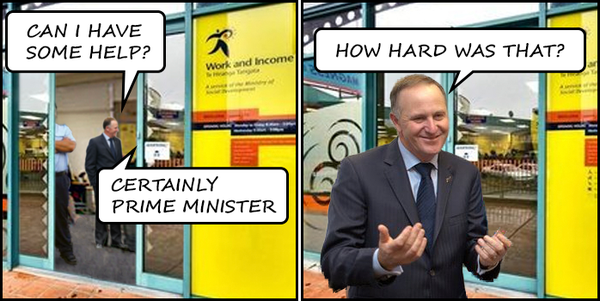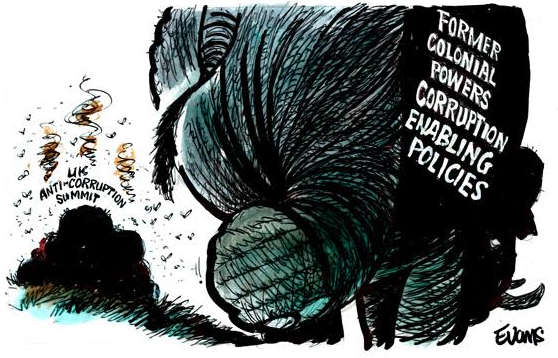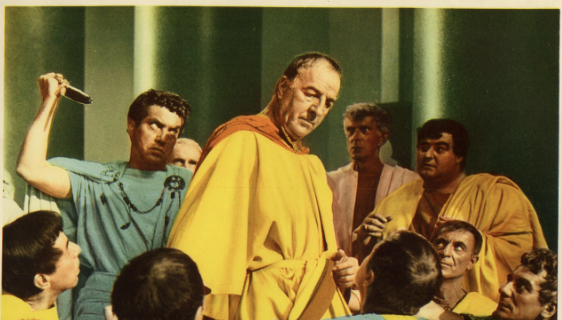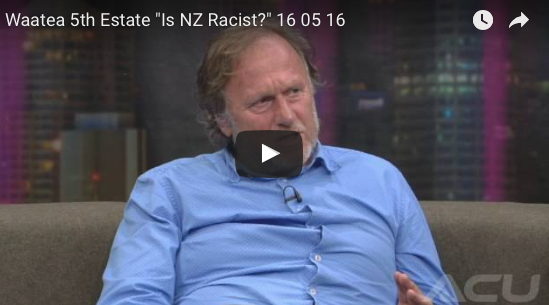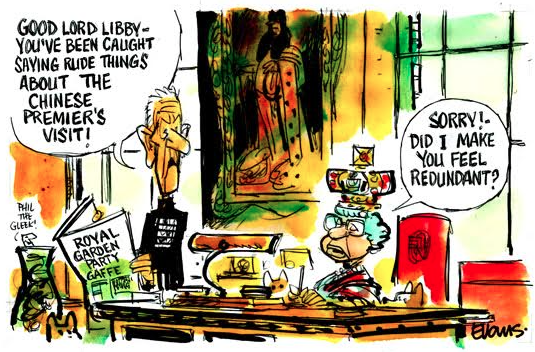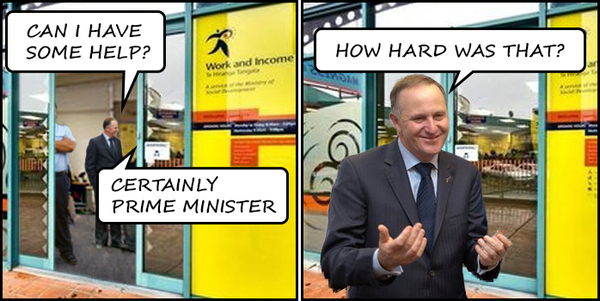
Hooton and Farrar slag Key – With friends like these…
.

.
The Panama Papers continue to simmer and National’s greatest fear is that the public will link tax-dodging to the current government. (Up-coming political polls will be interesting to see.) But that is not all that National’s hierarchy has to worry about.
Closer to home, National is facing “Third Termitis” and an increasingly cynical view of the government and it’s leading figures – even from within.
Some recent ‘digs’ at Dear Leader John Key by right-wing commentators – ostensibly friendly to National – are either miscalculations, or a subtle hint that respect for Key’s leadership style is waning.
Case in Point #1 – David Farrar
On 2 May, National Party pollster and apparatchik, David Farrar made a guest appearance on Jim Mora’s afternoon Panel (hosted that afternoon by Jesse Mulligan), on Radio NZ. Along with lawyer Mai Chen, they discussed the issues of the day;
“…foreign Trusts and how much the Prime Minister was involved in our tax laws.”
The issue of what Key’s lawyer – Ken Whitney – said to then-Revenue Minister, Todd McClay arose amongst the Panelists, and host.
Ken Whitney, the executive director of tax-trust specialist, Antipodes Trust Group, wrote to McClay on December 3, 2014, over concerns Inland Revenue were reviewing the sector;
“We are concerned that there appears to be a sudden change of view by the IRD in respect of their previous support for the industry. I have spoken to the Prime Minister about this and he advised that the Government has no plans to change the status of the foreign trust regime.
The PM asked me to contact you to arrange a meeting at your convenience with a small group of industry leaders who are keen to engage to explain how the regime works and the benefits to NZ of an industry which has been painstakingly built up over the last 25 years or so.”
Key refuted that he had “advised that the Government has no plans to change the status of the foreign trust regime“;
“One of the members of the tax, that group, the foreign trusts, asked me about it. I said I haven’t got a clue what you’re talking about, I don’t think that’s right that there are changes, but go and take it up with the minister.
Subsequently there’s miles of paperwork that shows all the stuff he did, I had no other involvement other than that – it happens every day to me, people come up to me all the time and say ‘what about x or what about y?’ and I say take it up with the relevant minister.”
Bear in mind when this conversation took place: December 2014.
Key is clear in his recollection of the conversations he had with his then-lawyer, Ken Whitney, and then-Revenue Minister, Todd McClay;
Mr Key was insistent he made clear to McClay the connection between himself and Mr Whitney, when he alerted his minister to the approach from his lawyer about the trust rules regime.
“I’ve seen his comments, what he basically said was he couldn’t absolutely recall but it was two years ago but I absolutely told him – 100 percent. It’s a few years with an oral conversation that lasted a few seconds but I definitely told him.”
Which is intriguing, as Key has a somewhat dubious reputation for having a shockingly bad memory of events that are uncomfortable for him to recall and discuss. Especially when journalists are present.
A particularly extraordinary example of Key’s inability to retain recollection of events took place in November 2014, when Key “forgot” a txt-conversation he had had with right-wing blogger, Cameron Slater;
“He sent me a text one time, but I can’t remember when that was.”
In fact, the txt-conversation with Slater took place only eighteen hours previously. Which resulted in headlines like this one;
.

.
When the issue of John Key’s memory and reputation for lapses arose, Farrar made this revelation;
@10.06
“Oh I’m not sure I quite accept the assertion there. I found in my experience the Prime Minister has a remarkable good memory on things. There was – I had a conversation with him the other day on something, where he referred to ‘Oh I think there was something in January, um, 2007’, and he was right. It took me half an hour to look it up, but he remembered this thing, from what was it, nine years ago. So I think actually he generally has a very good memory, just not a perfect one.”
Farrar’s willingness to share this aspect of John Key’s mental state is reassuring. It means our esteemed Dear Leader is not suffering on-set Alzheimers Disease or any similar brain-debilitating condition, when he insists he cannot re-call an inconvenient event.
It just means Key is lying.
Thank you, David Farrar, for clearing that up.
Case in Point #2 – Matthew Hooton
The next person to offer a singularly unflattering insight into Key’s personality was right-wing commentator and a member of the neo-liberal cadré, Matthew Hooton.
Hooton has a regular 11am appearance on Radio NZ’s Nine to Noon show, where he offers his views from a right-wing, free-market perspective. He speaks frankly on a variety of issues-of-the-day and can be as highly critical of National; it’s policies; and leadership, as he is on the Left.
Hooton’s own investigation into Murray McCully’s corrupt Saudi farm-in-the-desert deal should be required-reading for all New Zealanders, regardless of their political persuasions. As political scientist, Bryce Edwards wrote in May last year;
Perhaps the strongest views are from Matthew Hooton, who has two columns in the National Business Review (which have just had their paywalls removed). The first column, Gulf games fail to deliver, gives the background to the fallout between the New Zealand Government and Saudi Arabia, with Hooton largely blaming John Key. According to Hooton’s story, the Saudi businessman was led to believe that the incoming National Government of 2008 would resume live sheep exports.
Once in power, however, Hooton says that Key changed his mind on hearing that TVNZ would broadcast “a programme critical of live sheep exporting. In a panic, and fearing further criticism from the Green Party’s Sue Kedgley, Mr Carter was ordered by Mr Key’s media staff to go on TV and rule out any resumption of the trade, ever. This was later confirmed to the Saudis as New Zealand’s new position and negotiations ceased. Furious, Mr Al-Khalaf used his influence with the Saudi royal family to ensure the FTA was put on ice”.
Hooton’s second must-read column, Flying sheep endanger McCully, turns the focus to the Minister of Foreign Affairs, suggesting that his subsequent handling of the mess could lead to his sacking. Hooton suggests the whole deal is “implausible” in terms of the bizarre farming arrangements and partnership that the Government has established.
He doubts that the promised innovative “agrihub” will actually eventuate and “If not, people might start comparing Mr McCully’s dealings with Mr Al-Khalaf with those with Mr Roberts 15 years ago. For which Mrs Shipley sacked him”. Hooton says “Key’s nervous ‘yup,’ when asked if he had confidence in his foreign minister, betrayed concern over where the story may head”.
On 9 May, filling his regular slot on Nine to Noon’s political panel, Hooton voiced his views on the Panama Papers and how – in his view – our Esteemed Dear Leader was handling the growing scandal.
As Hooton discussed cleaning up the trust sector in New Zealand,
“That is despite his government’s obvious negligence in not legislating for greater transparency around the trust industry years ago, when reputable trust lawyers themselves were lobbying for it.”
– one particular remark caught my attention,
@ 2.19
“… From talking to the people in the industry, is that some of the people I’ve been talking to, who’ve been using other consultants up till now I should say, they’ve been trying to lobby John Key on this issue since when he was Leader of the Opposition. And they’ve been wanting him to make the industry more transparent. And Robin Oliver [former head of IRD] was on Morning Report this morning and talked about this. And the people that I’m talking to anyway, they tell me that John Key’s consistently said to them, ‘Oh yeah, absolutely, totally agree, we must sort that out, yep, yep, the government will do that’.
But absolutely nothing has happened. And I don’t think that’s necessarily – there’s nothing corrupt about that. It’s how John Key rolls. It’s a refrain I hear from people in the business community, the education sector, the health sector, you name it, John Key always just sez to people what he thinks they want to hear, and there doesn’t seems to be any follow up.”
“John Key always just sez to people what he thinks they want to hear…” – a very brief, off-the-cuff remark – but one which goes some way to perhaps explaining Key’s popularity with the public. Even those who might stand to be disadvantaged by his policies.
An example of occurred in 2008, during the PSA Conference, when Key made a firm committment resiling National from any future asset sales;
“There’s no agenda to sell assets. There will be no asset sales in the first term – in fact there may never be asset sales in the year’s ahead.”
His speech can be viewed here.
In the same video clip, Key also resiled from weakening Union power;
“Yes, I support Unions, and I support New Zealanders’ rights to join unions. And no, we’re not proposing to change the Employment Relations Act in a way that weakens unions…”
Seven years later, amendments to the Employment Relations Act were pushed through Parliament. The amendments weakened Union power;
National has highlighted employment law changes as one of its key priorities in the first 100 days in Government. Proposed changes will affect collective agreements, the 90-day trial period, strike action and rest and meal break provisions.
[…]
The changes will give employers more power during the bargaining process.
As Hooton pointed out, “John Key always just sez to people what he thinks they want to hear…” – and Key was speaking to the 2008 PSA Conference. Union delegates were told precisely what they wanted to hear.
Coupled with Farrar’s comments about Key’s “very good memory” (and by a process of elimination, therefore a liar) – and we have two right-wingers close to our esteemed Dear Leader who have shared their personal observations with “how John Key rolls“.
However, the public may not be as gullible to Key’s duplicitous charms as many would think.
In October 2009, Key’s popularity rating (3News/Reid Research Poll) was at a staggering height of 55.8%.
By July 2015, his popularity rating had fallen to 38.3%.
Whether consciously or sub-consciously, perhaps the public are coming to the same realisation that Farrar and Hooton are at; our Prime Minister is a con-artist.
And a damned good one.
.
.
.
References
Radio NZ: The Panel with Jim Mora – 2 May 2016
NZ Herald: The Antipodes email – John Key, his lawyer and foreign trusts
Radio NZ: PM’s private lawyer lobbied government on foreign trusts
Radio NZ: I told McClay about lawyer, says Key
Fairfax media: How is John Key going to spin this one?
TV3 News: John Key ‘genuinely couldn’t recall’ text messages
Radio NZ: The Panel with Mai Chen and David Farrar – Part 1 (alt. link) (audio)
NZ Herald: Political roundup – The bizarre ‘bribery’ and flying sheep scandal
Radio NZ: Key ends week deeply satisfied
Radio NZ: Nine to Noon – Political commentators Mike Williams & Matthew Hooton
Radio NZ: Nine to Noon – Political commentators Mike Williams & Matthew Hooton (alt. link) (audio)
TV3 News: Labour: Key promised no job cuts, asset sales in 2008 speech
TV3 News: Highlights from Key’s 2008 ‘no job cuts’ speech (video)
MoBIE: Amendments to the Employment Relations Act 2000 (March 2015)
Radio NZ: National’s proposed labour laws
The Paepae: John Key is getting a reputation as a liar
Previous related blogposts
The slow dismantling of a Prime Minister continues
The Mendacities of Mr Key # 16: The sale of Kiwibank eight years in the planning?
.
.
.
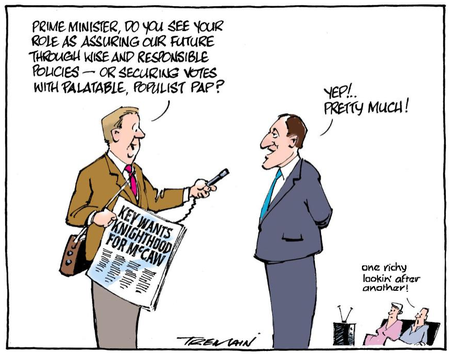
.
.
= fs =
Waatea 5th Estate – Is NZ racist?
Joining us tonight to discuss if NZ is racist…
Mitch Harris – Producer Radiolive
Catherine Delahunty: Green Party MP
Andrew Judd – Mayor New Plymouth
Tracy Martin NZ First MP
Prof Paul Spoonley Massey University
NZ’s green brand is 100% pure hypocrisy and science continues to be gagged
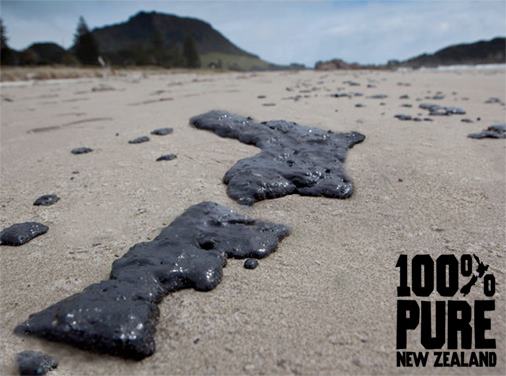
Our 100% pure brand is a sad sick joke.
Dairy intensification pollutes rivers, we generate huge amounts of global warming emissions and we allow deep sea oil drilling.
But it gets worse.
We now know that there has been grotesque over fishing over the last 60 years...
The Green Party is calling for more government observers on commercial fishing vessels and at ports following the release of an international study showing major under-reporting of commercial fish catches in New Zealand waters.
“The Government can’t claim that our fisheries management is sustainable when it clearly has no idea how many fish are being taken,” said Green Party primary industries spokesperson Eugenie Sage.
A new report by the University of British Columbia, with research from the University of Auckland, shows more than twice the number of marine fish have been caught in New Zealand waters between 1950 and 2010 than Government and industry statistics suggest.
The study says fish are being caught and then dumped at sea because they’re under or over-sized, have low market value, or simply because the fishing vessel doesn’t have enough space in the hold. It says there has been “deliberate, widespread and systematic under-reporting of commercial catch”.
…the response by the Government has been to attack the science behind this report, which is of itself sadly not unusual. More and more scientists in NZ are complaining that they are being threatened and gagged if their science goes against the right wing mythology of the National Government.
We are decimating our fish stocks, destroying our water quality, polluting our rivers and are shutting down the scientists pointing this out to us.
The European Song Conquest

JAMALA wins the 2016 Eurovision Song Contest (ESC) for Ukraine with her controversial song “1944”.
Why controversial?
Because the rules of the ESC expressly forbid entries of a political nature, and “1944” is clearly a politically motivated attack on the Russian Federation.
How so?
Because the song takes for its subject-matter the forcible deportation of the Crimean Tartars by the Soviet Dictator, Joseph Stalin, in – you guessed it – 1944.
What’s wrong with that?
Well, it’s less than three years since the Russian Federation annexed the Crimean Peninsula in response to the fascist takeover of the Ukrainian Government in February 2014. Since then civil war has raged in Eastern Ukraine, with the Ukrainian Government accusing the Russians of providing direct military assistance to its breakaway provinces. Relations between the two countries are at an all-time low. So, possibly not the best time for a song about Soviet Russia’s actions in the Crimea.
Why did they let it through, then?
Good question! The Russians are saying it’s because the European Union is determined to cast the Russian Federation and its President, Vladimir Putin, as Europe’s most dangerous enemies. They point to the fact that not only did the organisers of the ESC bend the rules to ensure that “1944” became a contender, but that the official jury also deliberately ignored the popular vote, which put the Russian entry at No. 1, so that they could install Ukraine as the winner.
But, it’s just a glorified talent quest – does any of this really matter?
Yes, it does. Just as the sudden appearance of anti-German newspaper articles and popular novels in the early years of the 20th Century helped to prepare the British people for war with Germany in 1914; seemingly unimportant gestures – like voting Ukraine the winner of the ESC with an anti-Russian song – may indicate that the European Union is preparing its members for war with the Russian Federation in the not too distant future.
Yes, but you still can’t get around the fact that what the Soviet Government did to the Crimean Tartars was very wrong.
That’s true. But it’s also true that, following Hitler’s invasion of the Soviet Union in June 1941, nearly 10,000 Tartar men joined the Tartar Legion and fought alongside the Waffen SS right up until the Red Army retook the Crimea in 1944. These SS military formations and their auxiliaries were responsible for some of the worst atrocities of World War II. Why didn’t Jamala sing a song about the victims of the Nazis and their Crimean allies? I would also like to know why the historically sensitive ESC Jury showed so little interest in who the Ukrainians were fighting for in the year 1944. (Here’s a hint – it wasn’t for the Allies!) Why is the deportation of the Crimean Tartars deemed worthy of a song, but the fate of the Ukrainian Jews at the hands of their Ukrainian Nationalist neighbours regarded as something best left in the past?
Not so much the Eurovision Song Contest, as the European Song Conquest!
GUEST BLOG: Vanessa Kururangi – RIP Joy Owens – she lived at 286

Anyone who infers that those from lower socio economic groups can’t achieve incredible things and lead interesting rich lives doesn’t have a “286” mindset.
While we are in the midst of fighting for the rights of tenants, and pushing back against the sell off of State Homes here in Tauranga this thing called life beckons us to take a breath. Sometimes that breath is taken as someone exhales their last.
This morning I drove past number 286 Fraser Street… a simple home amongst state homes in Merivale. I paid it no mind really. I’m just aware that I drive this route every day to work, and I know more or less what part of Merivale its in.
Number 286 blends in with the other homes – basic, unassuming, non-descript. Unlike one of it’s former tenants.
She was vivacious, sharp, determined and force to be reckoned with when she had a vision to be actioned. This morning I heard about the passing of Joy Owens, an outstanding public servant, inspirational grandmother of Mahe Drysdale (he dedicated his Olympic gold medal for single sculls in 2012 to her), and former wife of the late Sir Bob Owens. She is also grandmother to Rose Keddell who earned her defender position in the New Zealand Black Sticks.
Mrs Owens eagle eye for profitable business ventures and investments which enriched our communities earned her her own reputation independant of that of Sir Bob. When it came the the growth and development of Tauranga Moana, she showed enthusiasm in promoting the arts, culture, and had a soft spot for social causes – her humble beginnings at 286 Fraser Street never straying far from her mind. She was an effective Mayoress (1968 – 1977) and was honoured with a Queens Service order in 2006.
This woman was astounding. She simply cared… and it showed. Mrs Owens from number 286 will be fondly remembered by many of us for kindly reasons too many to list. It touched me that she has said that of all the projects she has been involved in, bringing the Merivale Action Centre to fruition was one of her proudest. I go there often. Our parents have meetings here, our tamariki use it as a base for our holiday programmes. We, under the banner of the State Housing Action Network (S.H.A.N) meet in this building and discuss how we can Save Our State Homes.
Now I wonder what Mrs Owens would’ve made of our meetings. I wonder what actions she would have us do. She clearly loved Merivale as much as we do. I wonder what she would have made of the governments intention to sell off state housing in the community she held so dear. Mostly, I wonder how she would’ve stuck it to them, AND what she would say to those making a play to buy them.
Today I hat tip Mrs Joy Owens, for aspiring and inspiring, and for keeping Merivale in her heart.
We will continue pushing back against the sell off of state homes for all those who live in (or want to live in) houses just like number 286 – because we all deserve the chance to achieve beyond the expectations of others AND hail straight from the streets of Merivale.
Vanessa Kururangi is a State House Tenant Advocate
GUEST BLOG: Arthur Taylor – rehabilitation programs are a scam

It’s hard to believe isn’t it… CareNZ continues to take public funds to provide under-resourced programmes for Prisoners and continues to get rid of qualified, experienced Counsellors at the cost of thousands of taxpayers dollars. All the while saying they find it hard to attract Counsellors to explain the reason why they are constantly under-staffed.
Perhaps their Chairperson can explain why even more Counsellors may have been sent on their way for speaking up against shoddy practices of the leadership in CareNZ.
And how are they getting away with spending Public funds for lawyers to cover up their dubious employment practices, when it is against the Public Finance Act to spend taxpayers money on anything than what it was given to them for.
Perhaps the Member of Parliament responsible for Corrections and the Auditor General need to undertake a forensic audit of CareNZ funds along with a full accounting of how many dollars allocated for Counselling services for Prisoners got spent on Employment Consultants and Lawyers. If indeed they are found to have spent Public funds for purposes other than what it was given to them for then they must be made accountable under the law and face the consequences of breaking it, just like anyone else certainly would be.
Arthur Taylor is a prisoner rights advocate and is TDBs blogger inside prison.
Prime Minister needs to “get real” on social housing crisis – PSA

The Prime Minister must stop talking about tax cuts while his government’s policies have led to New Zealanders sleeping in cars and garages, the Public Service Association says.
John Key has shoved the blame onto Work and Income, saying he’d be “amazed” if staffers there would leave people sleeping in their cars.
He admitted there was not enough emergency housing in South Auckland, but then went on to promise a $3 billion tax cut in next year’s budget.
PSA National Secretary Glenn Barclay says Mr Key needs to take a look at his government’s priorities.
“Our members in South Auckland are as horrified as anyone about the situation there.
“But this situation is due to the deliberate choices made by Mr Key and his ministers.
“They have carved up Housing New Zealand’s work and placed responsibility for assessments on the Ministry of Social Development.
“They have moved more and more services online, making it more difficult to talk to a real person and get the compassion and understanding our members want to offer them.
“Our members want to help, but this government’s policies are getting in the way.”
Glenn Barclay says Mr Key and his ministers have lost touch with what’s going on in our most deprived communities.
“Mr Key is promising tax cuts while people live in their cars.
“He needs to get real – and help our members help vulnerable Kiwis.”
Cannabis Social Clubs in New Zealand: the best option for beyond prohibition?

Public support for cannabis law reform is growing, and it seems inevitable that it will happen at some point. It’s no longer a question of should we change the law, what should we change it to and how soon?
Enter Dr Chris Wilkins of Massey University’s SHORE research center. He organised a drug policy conference last week in Auckland to help inform the debate and move it along. He has also proposed a new model for cannabis law reform in New Zealand: Cannabis social clubs in the form of Incorporated Societies (CIS), which would purchase cannabis products from a new Government agency, which has in turn licensed a variety of producers. The full version can be read at the New Zealand Medical Journal (behind a paywall) or watch the youtube video here.
The advantages are numerous:
- cannabis users can join the social club of their choice and have safe legal access to cannabis products;
- the cannabis products sold through clubs will be known strengths and dosages and free of harmful residues;
- cannabis social clubs are not-for-profit and will have social objectives such as providing harm reduction information to their members;
- clubs will only be accessible to adults aged over 18;
- CIS clubs could be established with only small tweaks to the licensing provisions of the Misuse of Drugs Act and the Incorporated Societies Act;
- the government cannabis agency collects revenue which can be used to offset the costs related to law enforcement, drug treatment and education;
- the agency can on-sell the cannabis to the Social Clubs at a price that is a better deal than the black market while detering excessive consumption;
- health promotion messages can be displayed on packaging and at the point of sale;
- cannabis from the social clubs will be distinguishable from illicit cannabis as they will be processed in some way (for example they could be ready rolled joints with logos and watermarks, child-proof vials of known-strength cannabis oil, lozenges made with fixed profiles of active cannabinoids, or pre-ground flowers ready for vaping);
- police can monitor licensed clubs while being better resourced to tackle any illicit sales.
This is a neat, cleverly thought out model that will satisfy the greatest number of concerns, bring in opponents, and creates very few problems compared to other models. Importantly, it gives us something to talk about. An idea to kick around and test out. It shows us what legalisation could look like in New Zealand. Is this how we want it?
My main concern is the proposed monthly limit of 28 grams (one ounce). That’s sufficient for most people, but it won’t be enough for heavy users and many medical users, who consume the largest amount but may be forced to abandon the legal social club system. Medical users are 42% of all cannabis users, or one in twenty people, and surveys of patients in US states where medical cannabis is legal show an average daily use of 1 to 5 grams, or 150 grams per month. Whatever we change the law to, it needs to minimise the size of the black market.
I’ve known Dr Wilkins for twenty years – his PhD used data from Aotearoa Legalise Cannabis Party members – and over the years we’ve had plenty of robust discussions about the options for cannabis law reform. I like to think I’ve alleviated some of his entirely valid concerns around the implications of making cannabis legal. I asked him why there was a limit at all, when there is no limit to the amount of alcohol or tobacco people can purchase. The answer was to be consistent with Uruguay, which has set a 28g monthly limit for cannabis club members. However in Uruguay cannabis consumers can also choose to grow their own or buy cannabis from pharmacies.
One of the world’s foremost experts in cannabis social clubs was in Auckland last week for a drug policy conference organised by Dr Wilkins and his team at Massey University. I talked to Prof. Dr. Tom Decorte, who has studied cannabis social clubs in Belgium, Spain and Uruguay at J Day in Auckland’s beautiful Albert Park. Under majestic century-old trees and surrounded by thousands of people openly consuming cannabis, I introduced Tom Decorte to two pioneers of cannabis social clubs in New Zealand. Dakta Green ran The Daktory while Jeanette Saxby operated the High Tea Cafe, both in West Auckland. Both have recently regained their freedom after being given custodial sentences for their part in the clubs. Tom Decorte told me that cannabis social clubs cannot solve the problems of the black market in isolation. “They are part of the solution. There must be the social clubs, there must be the home cultivation, and there must be the pharmacies.”
Dr Wilkins agrees. In a follow up email he told me “I think it would be consistent with overall principals of the approach to allow home cultivation without sale.” He also emphasised to me that the CIS model he outlined in the NZ Medical Journal is open to refinement, and suggestions for how to make it work better are welcome. I think it would be a huge improvement if medical users, their caregivers, and people who consume more than one ounce per month can also obtain it from pharmacies or grow their own.
The CIS model can be made better but there’s nothing I couldn’t live with. In the post-prohibition era, we’ll all need to make some compromises if we are to reach a consensus for law reform. What do you think? Leave a comment below, or head over to youtube – Dr Wilkins will be keeping an eye on the comments which he anticipates “could be really useful to develop the regime further.”
Higher Education – a Privilege of the Rich and the Young?
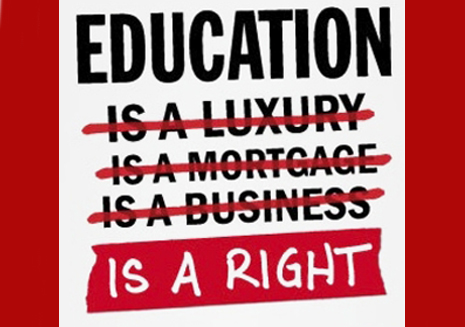
Tertiary education becomes less accessible each year, with fee increases, reduced student allowance availability, increases in loan repayments, lowering of the income threshold for repayments and unrealistic means testing.
I’m nearing the end of a three-year BA. I got my first ‘overdue loan repayment’ bill after only one semester. I’m expected to be paying off my loan while studying because I’m earning too much. The threshold is around $365 a week gross, regardless of whether you are 18 years old and flatting, or a single parent supporting children and paying high Auckland rents. Currently you can only get an allowance for living costs for four years of undergraduate study, so the one-year post-graduate diploma I want to do after my BA isn’t covered – never mind a Masters or Ph.D.
When I first enrolled for a Bachelor degree in 2013, Work and Income NZ told me they couldn’t pay me a benefit while I studied. After a lot of fuss, and pointing out that a single parent couldn’t survive on a Studylink Student Allowance (which is a challenge for a young person renting a tiny room), they granted it. Three times over the last two-and-a-half years they’ve told me out of the blue that someone made a mistake and I’m not entitled to a benefit while studying, meaning I couldn’t afford to continue to study, having wasted the last X number of months/years. Each time they’ve backed off, after a showdown involving tears or frustration and the mention of advocacy organisations/my lawyer (a bluff because I don’t have one). But it makes me wonder whether other, less pig-headed single parents out there wanting to improve their education and employability have given up in despair. It’s easy to see how WINZ’s intimidation tactics would convince people they’re scum and a drain on society. You screwed up and had a kid before you got an education, so now it’s too late.
Also slashed from Auckland University recently were large numbers of admin staff and courses, especially in the Arts, because the university puts profit before people, commerce before knowledge. It’s criminally negligent to leave the state of our education system in the hands of the private sector. If we are at all worried about the ‘brain drain’ – which doesn’t merit much mention these days in an increasingly globalised economy – then why the heavy dependency on high fee-paying international students, who have little or no stake in our society?
How can educating yourself be a drain on society? The best investment a country can make is in educating its population, young and old. New Zealand could be a world leader in so many fields if we took this approach. Instead, those that do manage to scrape their way to a qualification often leave for better opportunities overseas.
The combination of unwritten WINZ policy and government rhetoric fosters the beneficiary bashing that’s been prevalent since the early 1990s along with the view that government-funded education is an expensive burden on the tax payer. This rot began to set in with the ‘Rogernomics’ policies of the 1984 Labour government, which condemned NZ to an economic dark age from which we show no signs of recovering if the ‘user pays’ mentality continues to prevail.
Considering the past wrongs Labour needs to right, its new policy doesn’t show enough balls (see a critical analysis of this published a few months ago). Labour have announced three years of free tertiary education… but not until 2025… and only for students who have had ‘no previous tertiary education’. Hard luck if you’ve already paid for all or part of your first three years. Admirably though, there is no age limit. Whether they will extend student allowances past undergraduate level isn’t mentioned in their fact sheet, which suggests no change there. To offer the first three-to-four years for free then cut everything off completely, would still mean only rich people can become doctors and lawyers (or people reckless enough to get themselves into six digits of debt), further enhancing the economic gap and fostering a class system that New Zealand used to pride itself on not having.
Another foreseeable problem is that, if a Labour government were to stagger the introduction of free fees (currently projected over six years from 2019-2025), there would be a massive drop in enrolments leading up to it, with people postponing their studies for a year or two until it’s free. Meanwhile the universities lose a lot of money. There’s no reason not to implement it quite quickly – no new infrastructure is required – in fact it would be more cost effective to do this. If Labour are serious about fixing education, they need to break some eggs, stop trying to please everyone, and go back to the progressive tax rates we had before the Rogernomes made us the unfortunate guinea pig of the global neoliberal agenda.
Key’s delusional advice for the Homeless as infantile as his $3billion tax bribe
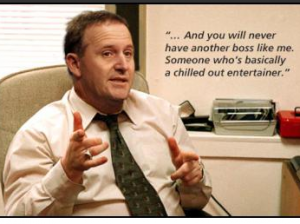
John Key’s connection with reality has always been tenuous at best.
A multi-millionaire money trader with a holiday mansion in Hawaii has about as much in common with the average Kiwi as the Prime Minister has with manual labour…
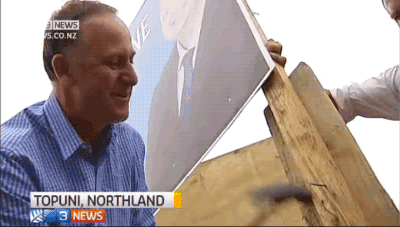
…the latest advice by Key to the homeless that they just go to WINZ and they’ll be looked after and found a home is so delusional it’s difficult to tell if Key is just taking the piss or not.
WINZ are an abomination that needs to be urgently shut down. As Waatea 5th Estate exposed over the 3 days we followed the AAAP beneficiary clinics held outside WINZ offices, WINZ front line staff are simply there to block, evade and deny any access to money by beneficiaries.
60% of beneficiaries on sole parent and job seeker benefits end up owing WINZ money through over payment mistakes or WINZ complex ‘partner’ equation that uses voodoo math to work out whether or not you are defrauding the system.
The paper work to get a benefit runs to over 70 pages, you are expecting the homeless to be able to deal with that for the possibility of getting a pittance which may come back to bite them in the arse later?
Key is just on another bloody planet if he thinks that
a) WINZ are they to help
b) The homeless even trust a Government Department
c) That WINZ will care one inch
It’s the sort of brainfart that keeps the PM on the ball with Muddle Nu Zilind.
Post declaring that he’s fixed the homelessness issue, he’s now going to bribe NZers with a $3billion tax cut to the wealthiest NZers and where will he get that $3b in tax cuts? Why the same place he’s been getting it for all the rich people he’s looked after, he’ll simply borrow the tax cuts.
That’s right.
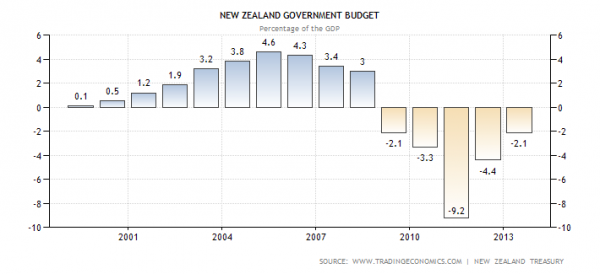
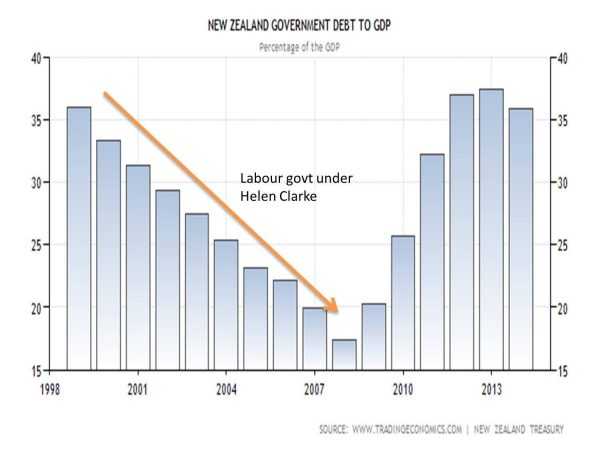
When the Right scream that the Left are envious of the rich and Labour is just bribing voters – point out the outrageous hypocrisy of National blowing another $3Billion on tax cuts while the poorest amongst us go hungry, cold and sick.
If you aren’t angry, you are part of the problem.
More money for Scoop?

The Scoop chrysalis has become a hungry, hungry caterpillar
A running gag at TDB drinks is ‘when will Scoop take back the news‘.
Late last year Scoop ran another one of their campaigns to take back the news and managed to raise tens of thousands of dollars for the relaunch of Scoop. Since then the editor has left to work in Ireland, Scoop has been unable to pay any of the other members of their advertising cartel and Scoop’s Pacific Media Centre has pulled back and formed a new relationship with Evening Report.
Scoop have been raising tens of thousands of dollars at a time to ‘take back the news’ yet it never ever seems to manage to take back that news.
A creaking server and stockpile of press releases doesn’t seem to be much of a news take back.
If Scoop does get some money from their latest call for donations, they should look to pay back the other blogs in the Scoop Advertising Cartel before they do anything else. The Standard, Pundit and Public Address all have mortgages to pay, throw them a bone.
The news that we are facing a newspaper monopoly is however deeply concerning and The Daily Blog shares the same concerns that it will undermine our democracy as Scoop shares, we just think it needs to be handled far differently.
TDB has a weeknightly 7pm current affairs show that streams live online, on all Iwi Radio and on Sky TV; We highlight progressive politics press releases; We have the widest diversity of bloggers in NZ; TDB breaks news, leads news and influences other news; and TDB has close to the same domestic traffic as Scoop.
Scoop needs to show that level of innovation and success before they pass the cap around again because there seems to be absolutely no progress whatsoever from the last time they asked.
Yes Newspaper monopolies are something to fight against, but I still can’t see how Scoop is part of that future without serious adaptation.

